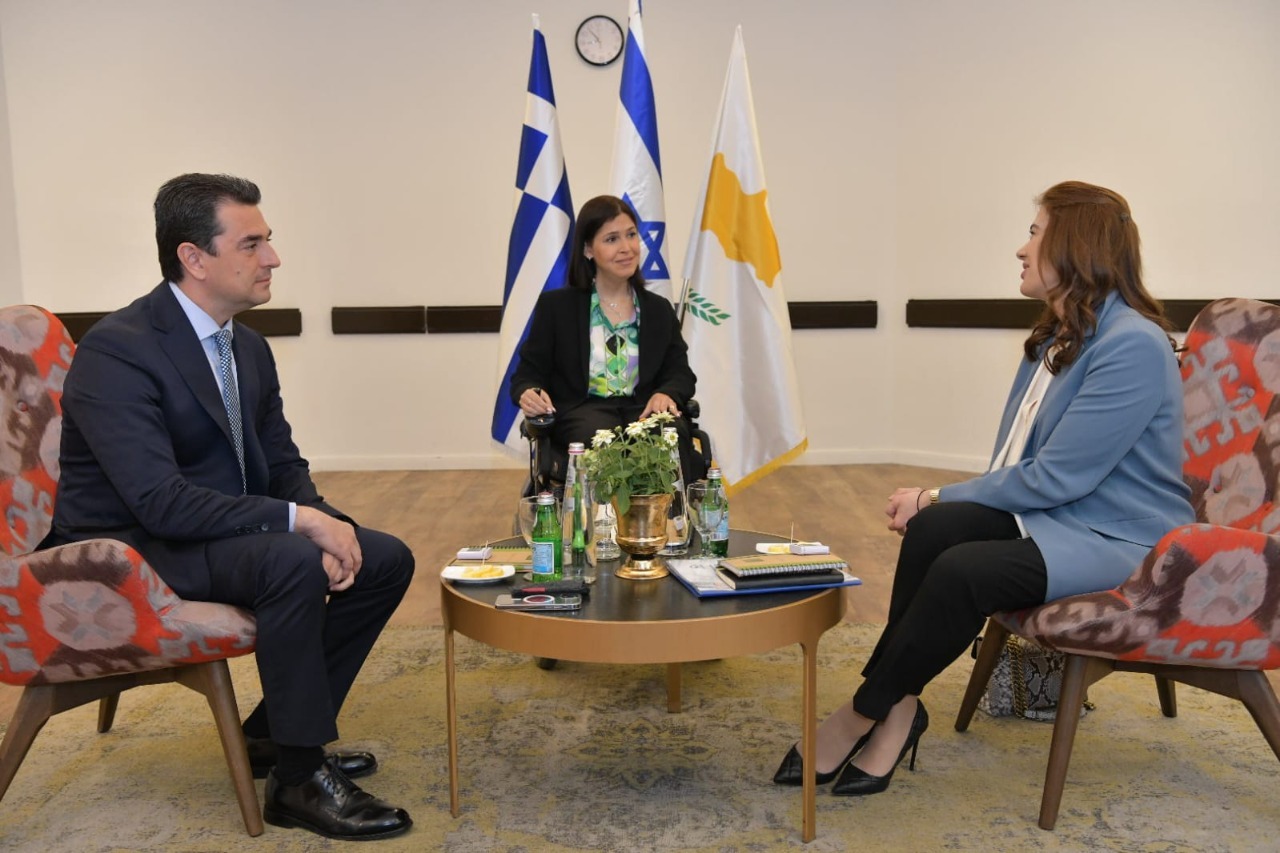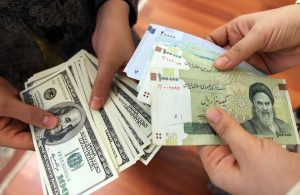
Turning off Russian gas, Greece-Cyprus-Israel think electric too
The Energy Ministers of Israel, Greece and Cyprus discussed in a tripartite meeting in Jerusalem on April 11 the effects of Russia’s invasion in Ukraine on the energy markets and agreed to advance specific investment plans in natural gas and electricity projects that will help reduce reliance on Russia.
Israel’s National Infrastructures, Energy and Water Resources Minister Karine Elharrar, Greece’s Environment and Energy Minister Kostas Skrekas and Cyprus’ Energy, Commerce and Industry Minister Natasha Pilidou also discussed the deepening of the tripartite strategic cooperation and the flagship projects promoted in the Eastern Mediterranean region, which will enhance energy security and contribute to the diversification of energy sources and routes, including the EuroAsia electricity interconnector between Israel, Cyprus and Greece, the construction of a liquified natural gas (LNG) plant in Cyprus and the EastMed gas pipeline, Greece’s Climate and Energy Ministry said.
“EU’s targets are to reduce reliance on Russian gas be two-thirds this year and completely before 2030, preferably by 2027. But it will also accelerate transition to green energy and within that, it plans to reduce use of gas by 30% by 2030 and by over 80% by 2050,” Charles Ellinas, senior fellow at the Atlantic Council’s Global Energy Center, told New Europe on April 14.
Under these conditions, the East Mediterranean region can help but only by utilizing existing installations, i.e., by using Egypt’s two liquefaction plants at Idku, operated by Royal Dutch Shell, and Damietta, operated by Italy’s ENI, to their maximum capacity, which is about 17 billion cubic meters per year, Ellinas said.
LNG exports so far this year amount to only 60% of this capacity, with close to 0.7 billion cubic meters going to Europe, he said, adding that US major Chevron has already increased its gas exports to Egypt, mostly from Israel’s Leviathan gas-field, to about 10 billion cubic meters and that will help Egypt increase LNG exports to Europe. In addition, ENI and Egypt have entered into a new agreement to enable more LNG to be exported to Europe through Italy.
“It is important to note that with EU’s stated intention to wean itself from gas as we approach 2030 and beyond, there is no support for new major projects to supply Europe with gas beyond 2030. That makes investment in the EastMed gas pipeline, or any new – greenfield – gas production and export projects, extremely difficult. Without EU support, no investor will be prepared to support such projects. We should also remember that EIB has also stopped investing in fossil fuel projects,” Ellinas said.
“I expect we will see some new drilling, especially where contractual commitments have already been made, mostly offshore Cyprus and Egypt,” he said, adding that in Israel Greece’s Energean has already started a new drilling campaign. “We could also see more activity in the Ionian,” Ellinas said, explaining that the blocks south-west of Crete licensed to US energy giant ExxonMobil, France’s Total and Hellenic Petroleum (ELPE) are very challenging – water depths exceeding 3,000 meters and difficult, highly fractured geology. “It remains to be seen if this area receives new attention. Certainly, the Greek government is now taking pro-active steps to revive offshore exploration, so that it can reduce its reliance on Russian gas,” he said.
Ellinas argued that the fastest and least costly option to expand East Med LNG export capacity is by adding new liquefaction trains to Egypt’s existing LNG plants. Building new, greenfield, liquefaction facilities in areas that have no existing infrastructure will be time-consuming and expensive, he said, arguing that investments will be forthcoming only if long-term LNG sales agreements are secured. With the EU intending to wean itself from gas, that will be a challenge, he said.
Turning to the EuroAsia electricity interconnector, he noted that most funding for the Cyprus-Crete link has already been secured. The remainder should be in place over the next few months. The plan is to start construction by the end of this year, with operations expected to commence early 2026, he said, adding that negotiations are in progress with Israel regarding the Israel-Cyprus link, but this is still at inter-governmental stage.
Regarding renewable developments in the East Mediterranean region, Ellinas said prospects are good, but because of the energy crisis and the war in Ukraine priorities have shifted to security of supplies and reducing dependence on Russian gas. “For example, Greece is prioritizing reducing gas import dependence and reducing the exorbitant cost of energy. As a result, it is now returning to lignite, and it is also expanding renewable capacity. Turkey is considering nuclear and expanding renewables for similar reasons,” Ellinas said, adding, “On the other hand, Egypt is expediting its green hydrogen production and export plans in cooperation with the EU”.
follow on twitter @energyinsider


